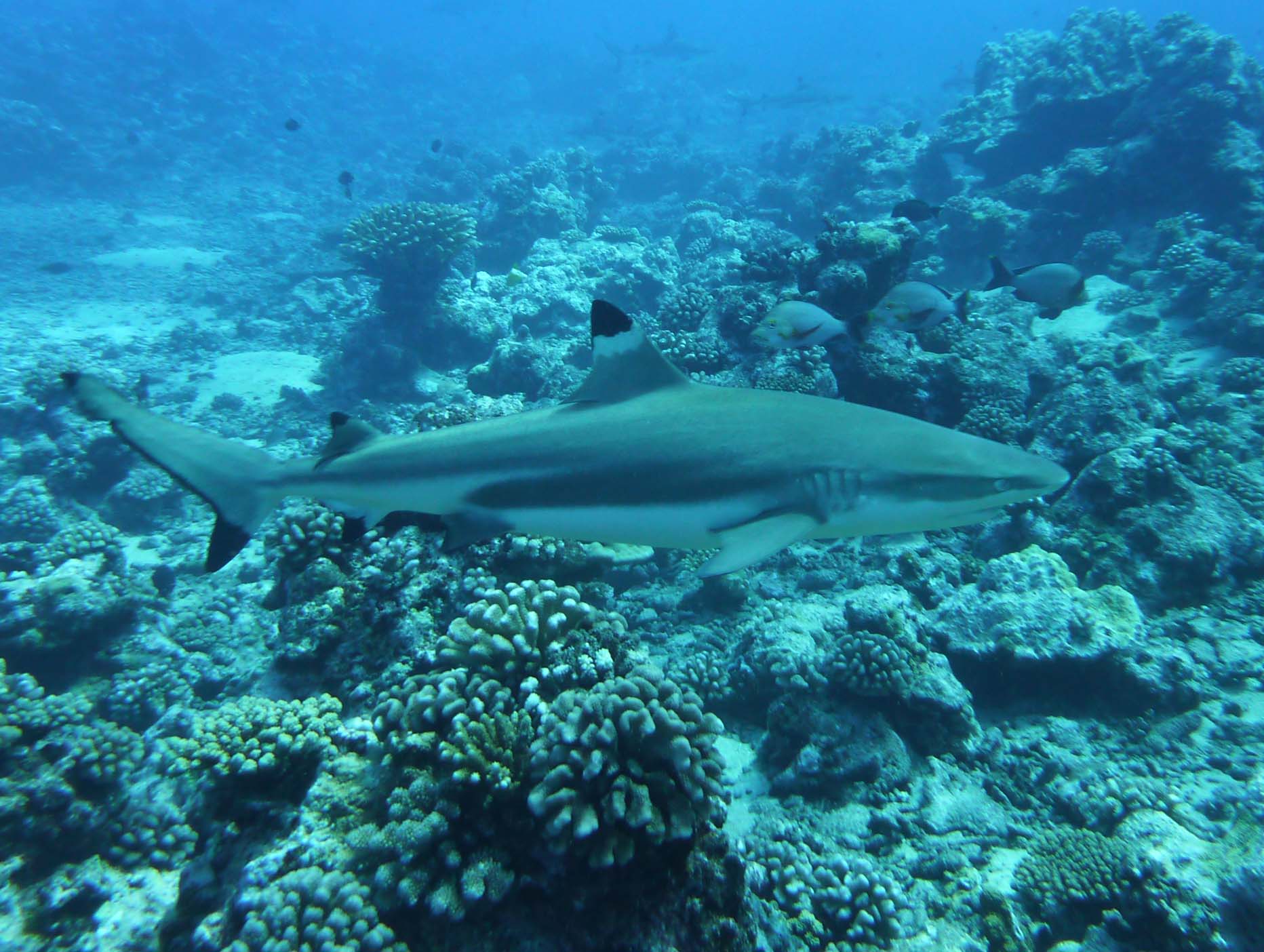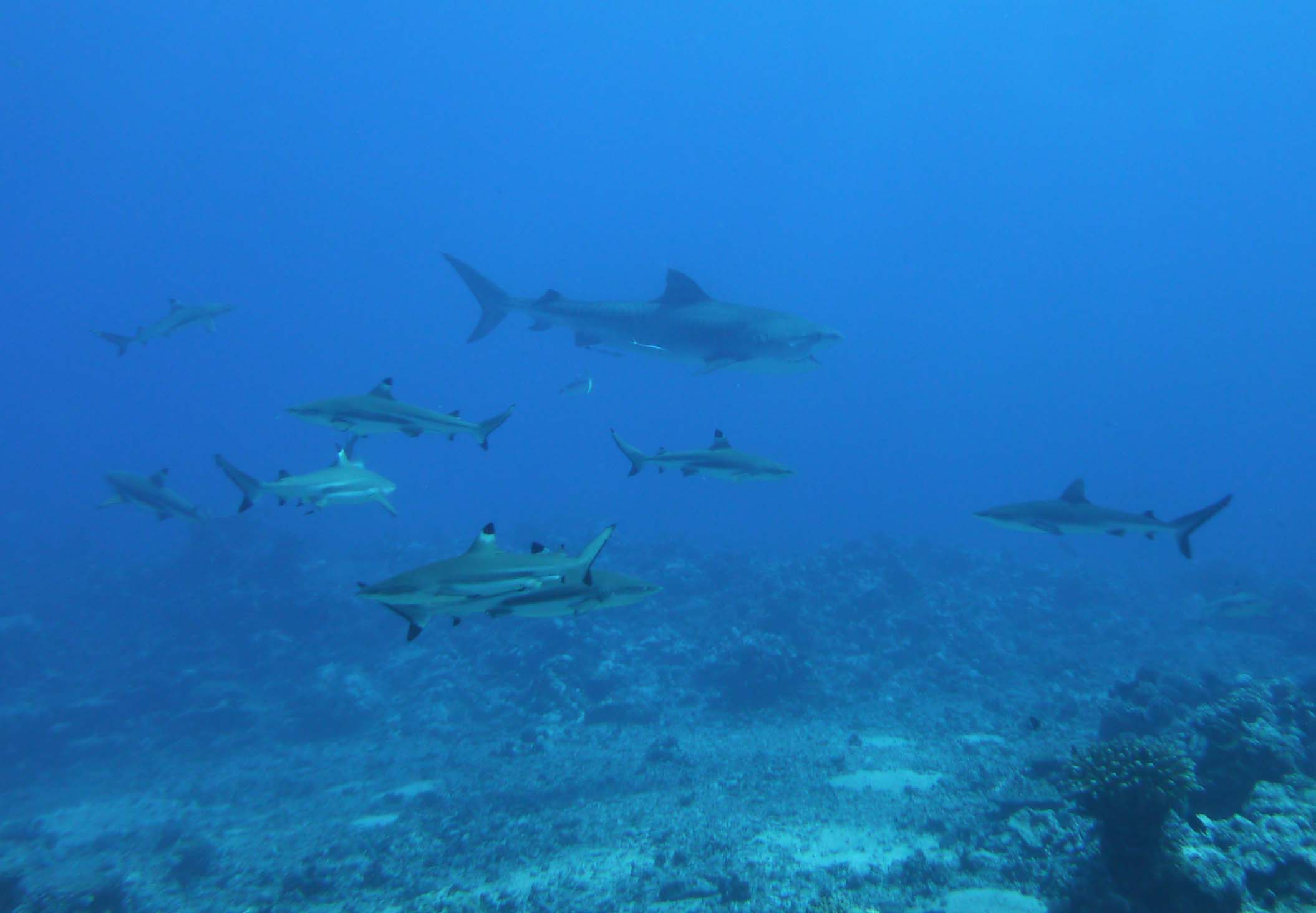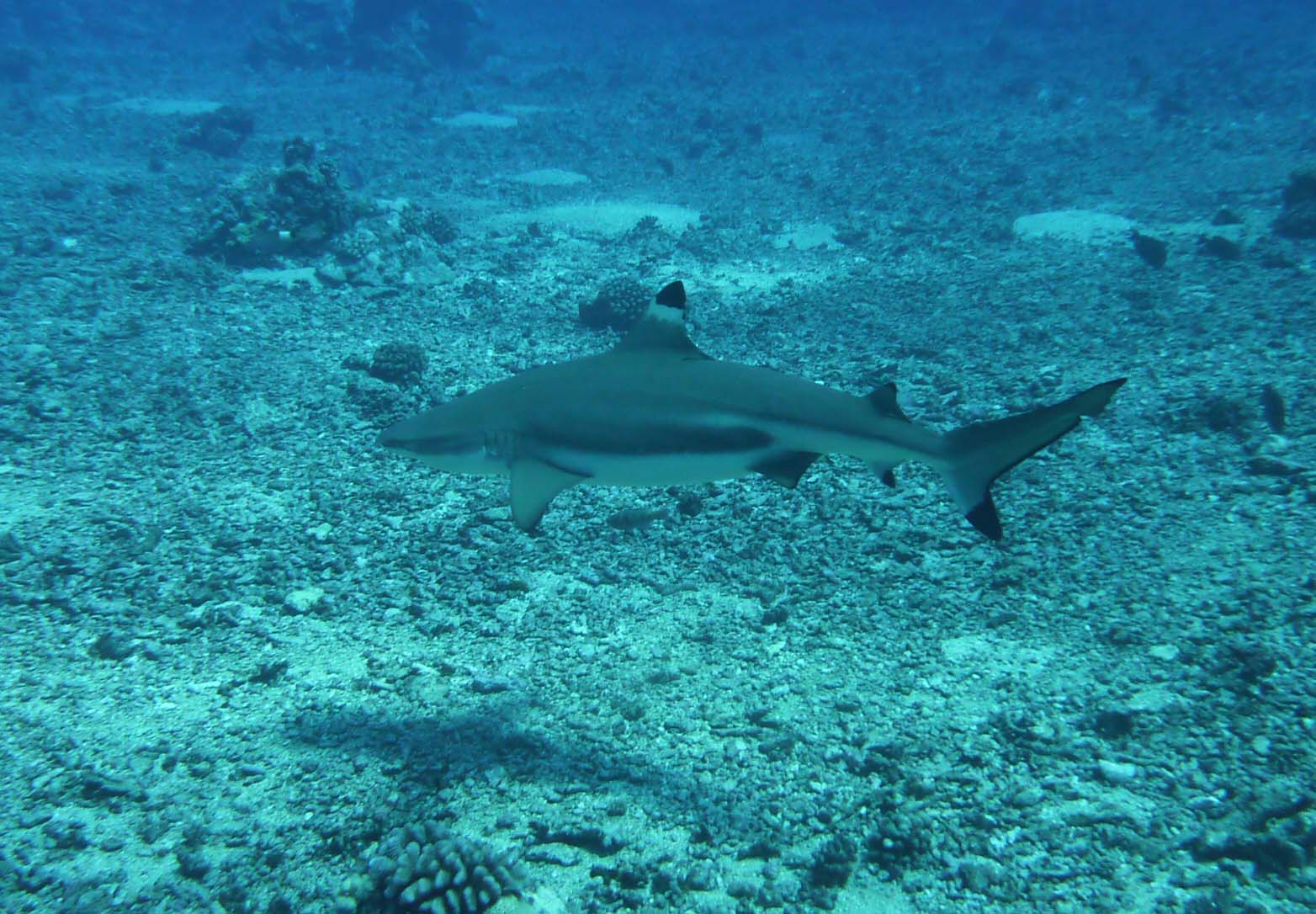
‘No-take’ marine reserves, where fishing is banned, can reverse the decline in the world’s coral reef shark populations caused by overfishing, according to a new study led by researchers from the University of Queensland, IMAS and James Cook University.
Published in the journal Current Biology, the study combined large volumes of tracking data on five species of sharks found on coral reefs in the Indian, Pacific and Atlantic oceans with video survey data from 36 countries, allowing them to predict the conservation benefits that no-take reserves of different sizes could generate.
The research found that existing marine reserves covering coral reefs need to be much larger to be effective against overfishing, as reef shark species range both inside and outside existing reserves.
University of Queensland lead author Dr Ross Dwyer said the study estimated that no-take reserves that extend between 10 and 50 kilometres along coral reefs can achieve significant improvements in protecting shark populations. (Reef shark images: Nils Krueck)
 “Existing protected areas on coral reefs would need to be enforced as strict no-take reserves and be up to five times larger to effectively conserve reef sharks,” Dr Dwyer said.
“Existing protected areas on coral reefs would need to be enforced as strict no-take reserves and be up to five times larger to effectively conserve reef sharks,” Dr Dwyer said.
“Those in the Atlantic, where reef sharks are generally less abundant, would need to be on average 2.6 times larger than those in the Indian and Pacific Oceans.”
Species such as grey reef sharks have experienced severe population declines across parts of their distribution, largely due to their low fecundity, late age at sexual maturity, and high susceptibility to fishing pressure.
They are listed as Near Threatened in the International Union for Conservation of Nature's (IUCN) Red List of Threatened Species.
The study also tracked whitetip, blacktip, gray, and Caribbean reef sharks.
IMAS co-author Dr Nils Krueck said that by including data on individual movements the study allows the conservation impacts of marine reserves to be estimated from a precautionary perspective.
 “Even small reserves seem to increase local reef shark abundance, but to ensure long-term conservation impact some reserves should be large and complemented by other effective fisheries management actions whenever possible," Dr Krueck said
“Even small reserves seem to increase local reef shark abundance, but to ensure long-term conservation impact some reserves should be large and complemented by other effective fisheries management actions whenever possible," Dr Krueck said
“For example, we calculated that reserves would need to cover approximately 15 kilometres of coral reef habitat to reduce the fishing mortality of all resident sharks by fifty percent.
''The next step is to investigate additional management options that help reduce the overall fishing pressure on reef sharks, given that human activities throughout much of their range in tropical countries remain poorly regulated," Dr Krueck said.
James Cook University co-author Professor Colin Simpfendorfer said shark populations are in trouble in most parts of the world.
“Finding ways to rebuild their populations is critical to ensuring our oceans remain healthy,” Professor Simpfendorfer said.
“This project is providing options for managers of coral reefs to address declines in shark populations which scientists know have occurred in many areas.”
The study was funded by the Shark Conservation Fund.